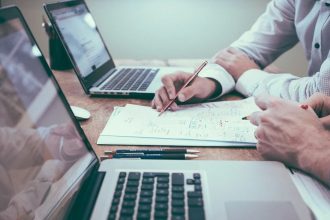The average person believes that the only way to lead a financially secure life is to earn a large income. But this is far from the truth. During the pandemic of 2020, even professionals who lost high-paying jobs could not sustain their lifestyle due to poor money habits.
Financial security is a product of the saving, spending and credit management habits you build and practise over a lifetime. Starting early gives you an edge.
So, here are the top 10 habits to focus on building, even while you pay off your loan to fix car or buy a new home.
1. Get Savvy About Your Loan
First off, know everything about your loan so that you can pay it off in the fastest way, without any additional interest. Write down the following:
- The total amount to be paid
- The date of your monthly instalment
- The exact instalment amount per month
- The amount of interest being charged
- The number of months/years
- Late fees charged in case your miss your monthly instalment
Put a reminder in your calendar or consider an auto-debit feature for your account, so you never forget to make a payment.
2. Know Where Your Money Is Going
If you’re one of those consumers who never knows where their money goes every month, it’s time to change this. Create a monthly budget that includes all your fixed expenses such as utilities and necessary expenditures, and try to live within the budget.
Record all your expenses on any expenses app, and over time you can also understand your spending patterns. Based on these patterns, you can make better consumer decisions.
3. Hold On To Your Disposable Income
Generations that enjoy a certain amount of disposable income tend to resort to impulse buys. These can include takeout meals or random online or offline shopping spree. Giving in to these impulses can set you back several pounds every month, and it all adds up.

Being intentional about your purchases might seem tough at first. But rewarding yourself with a small treat like a walk in your favourite park or a homemade meal you enjoy is a great incentive to get you started.
4. Cut Down Your Expenses
As you start recording all your daily expenses and studying your spending patterns, you will identify ways to cut down your expenses even further. You will make smarter consumer choices, be able to sniff out better deals and get more value for your money.
At some point, you’ll wonder why you ever needed a budget for certain expenses that are not creating any value in your life.
5. Grow Your Income
As your expenses reduce, simultaneously explore ways to increase your income. Almost everyone has the means to do this. Here are some ideas:
- Negotiate for a raise and better benefits at work.
- Turn your passion into a side hustle.
- Register with online gig platforms for skill-based side gigs.
- Get a part-time job on weekends or after work.
6. Build An Emergency Fund
It is advisable to build an emergency fund that can keep you afloat for at least 8 to 12 months if you lose your income.
Draw a monthly budget that includes necessary expenses like rent, food, transportation, and utilities. You can also add important expenses, like tuition fees. Do not add unnecessary expenses such as OTT subscriptions or golf lessons.
Now multiply this figure by 8 or 12 months. That is the amount you need to save for your emergency fund. This amount should be easily accessible during an emergency, so do not put it in the stock market or fixed deposits.
7. Invest In Your Fiscal Literacy
Spending a little time every week, improving your knowledge of finance is a great investment. There are many ways to do this without this journey being intimidating:
- Check out videos on YouTube that break down personal finance to make it easy and consumable.
- Register for an online course that helps you get savvy. Online courses come with videos, resources and community engagement.
- Read blogs that make personal finance easy.
8. Build Your Credit Score
Leveraging credit cards to build your score is a great idea. Using credit cards for your monthly purchases will help you access rewards that reduce your spends on consumer goods, travel, fuel and other expenses.
In a way, it’s almost like free money, but the key is to be able to always pay your bills on time. Falling behind means increased interest and late fees.
If you do have credit card debts, start paying off as much as possible on the one with the highest interest. For the remaining cards, you’re better off paying the minimum amount.
Do not close your credit card account once it is paid off, as having more fully paid credit cards will positively impact your credit score.
9. Begin Your Investment Journey
Once your emergency fund is built, the next step is to begin your investment journey. As you get savvier with your financial understanding, you can start investing your money and generating passive income.
Investing in the stock market lets you grow your passive income faster, but it also comes with risks. A diversified portfolio can help you mitigate risks and also reap the benefits. So, having a mix of instruments is the best bet.
Make sure you have a record of all your investments in one place so that you can track your network as it grows.
10. Define Your Long-Term Goals
Everyone has long-time goals. It could be related to travelling the world, buying a new home, investing in your education, or investing in a business. Writing these down helps to make them more concrete.
The next step is to define which ones are the most important and begin taking baby steps toward them. Being as specific as possible helps – you can attach timelines for these outcomes and start working towards turning these dreams into reality!
In Closing
Cultivating positive financial habits can help you become financially stable while continuing to pay off your debts. Try these 10 tips to take control of your loan repayments whilst juggling monthly expenses.















